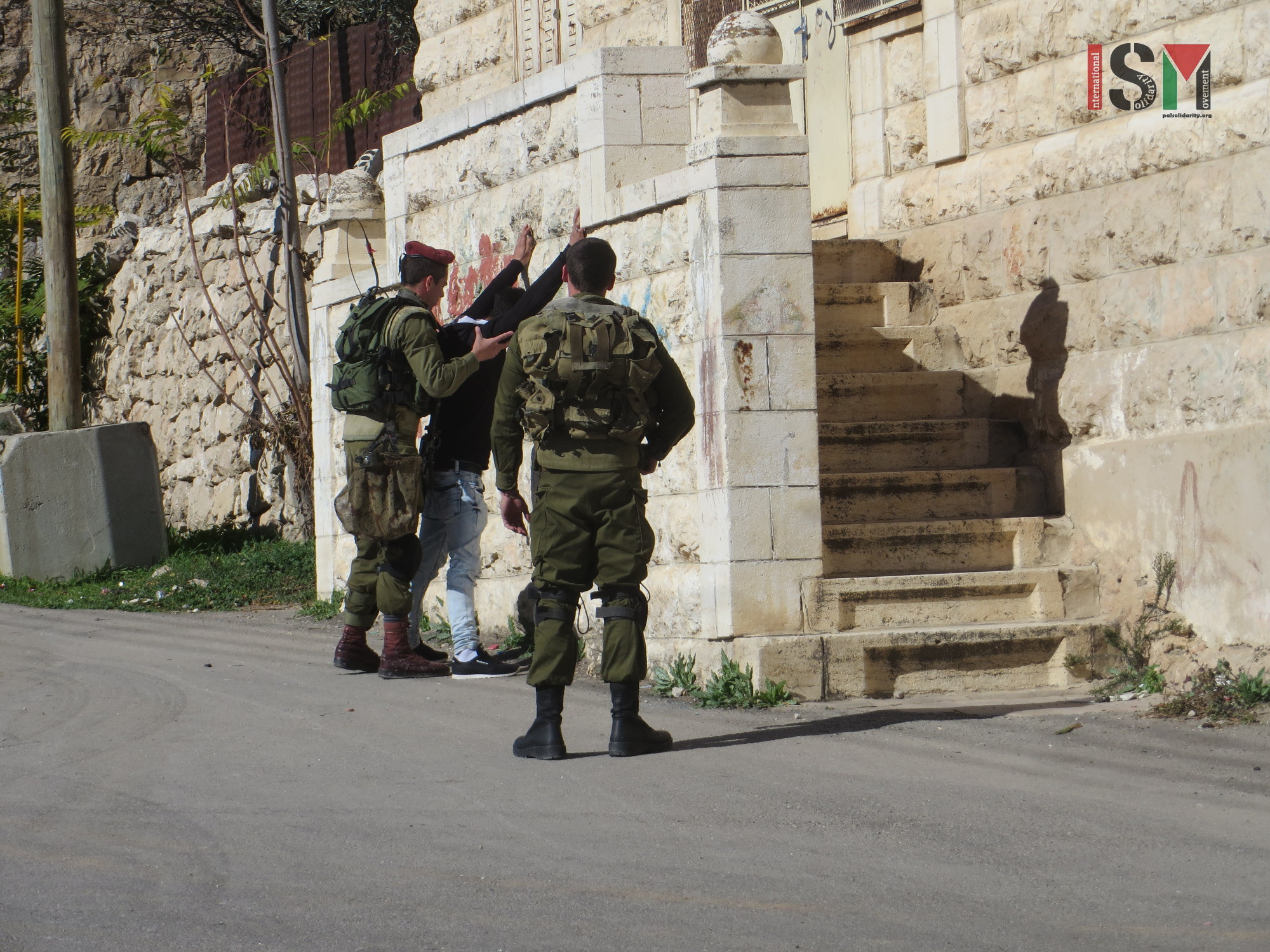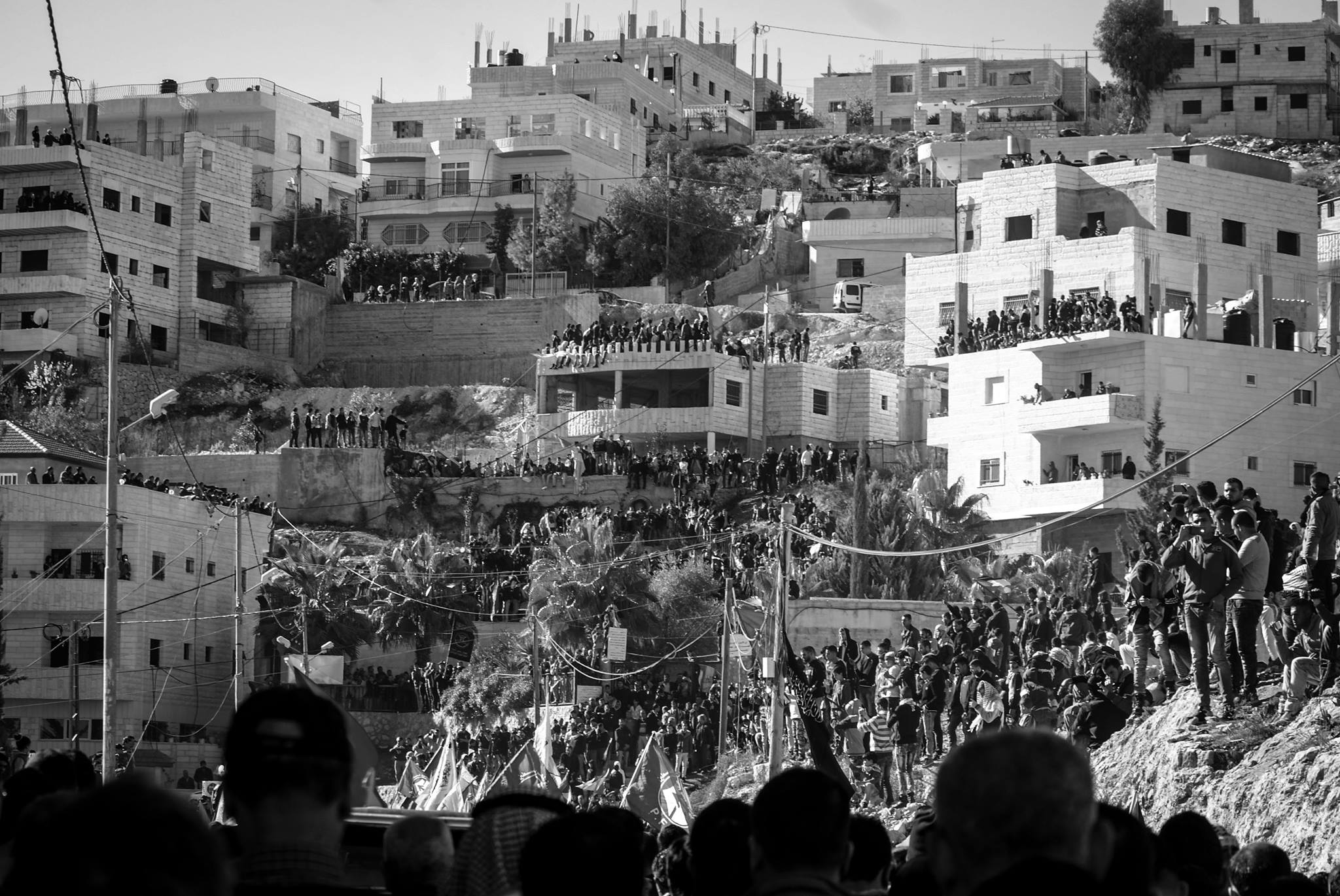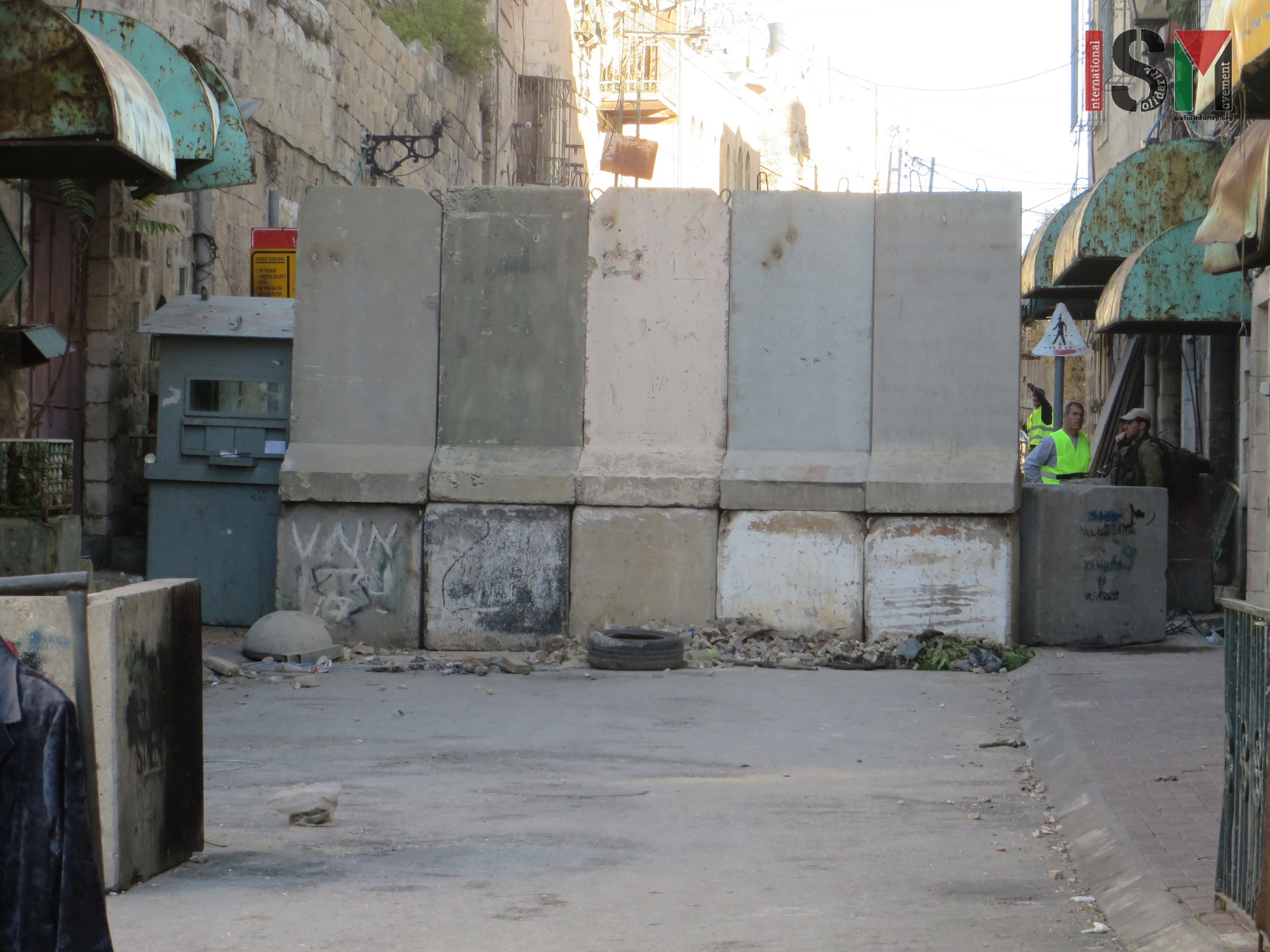Tag: Israeli Army
-
More humiliating body-searches in occupied al-Khalil (Hebron)
9th December 2015 | International Solidarity Movement, Khalil Team | Al-Khalil, occupied Palestine On Tuesday and Wednesday, 8th and 9th December 2015, Israeli forces bag- and body-searched virtually every male and female adult walking through or past a checkpoint in the Jaber mountain neighbourhood in occupied al-Khalil (Hebron). In the afternoon on Tuesday, Israeli forces…
-
Thousands join the funeral of Malik Shahin, killed on tuesday in Bethlehem
9th of December 2015 | International Solidarity Movement, al-Khalil team | Hebron, occupied On Tuesday, thousands of Palestinians joined the funeral of 20-year-old Malik Akram Shahin in the streets of Bethlehem. Malik was shot dead by Israeli forces on Monday night, during a detention raid in the Dheisheh refugee camp where he lived with his family. He was…
-
Closure of major checkpoint in occupied al-Khalil (Hebron)
8th December 2015 | International Solidarity Movement, Khalil Team | Al-Khalil, occupied Palestine Israeli forces on Monday, 7th December 2015, have closed Shuhada checkpoint in occupied al-Khalil (Hebron) for an indefinite period of time. This checkpoint marks the border between the H2 area of al-Khalil, under full Israeli control, and the H1 area, supposedly under…



